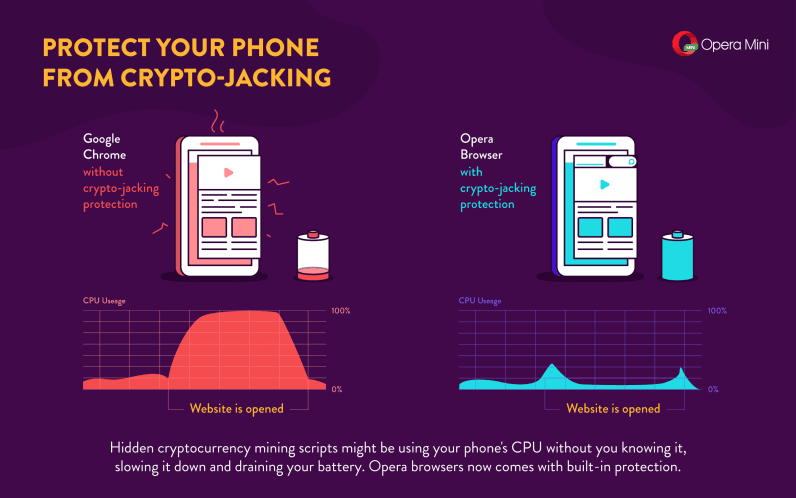Earlier this month, the Opera browser received an update that blocks hidden cryptocurrency mining scripts within websites' JavaScript code. Now, the same feature is rolling out in its mobile browsers: Opera for Android and Opera Mini.
Last September, it was discovered that The Pirate Bay had integrated a browser mining service, provided by Coinhive, into its website. The system used visitors' CPU power to mine Monero without their knowledge. It was later found that other sites, whether by choice or through hacks, were also using this drive-by mining technique, including Showtime.com and its streaming site, ShowtimeAnytime.com.
While there are several browser extensions and add-ons available for Firefox and Google Chrome to prevent cryptojacking, Opera went a step further and introduced an official setting in its browser that blocks the practice.
Visiting a website that has a surreptitious miner can cause systems to slow down and become sluggish, but the issues are even worse on mobile devices, which can take huge performance and battery-life hits. There was even a piece of Android malware that mined Monero so intensely it could cause physical damage to a phone.

"When you browse the web, there are no visual clues that your device is exposed to mining," says Jan Standal, VP Product Marketing at Opera "A single webpage you visit can take up to 4.5 hours of your battery time, if you keep the tab open. This often turns out to be just the battery time you needed to use a ride-hailing app or check the map to get home."
Reports say there are more than 3 million websites exposed to crypto-jacking. Last month, Trend Micro discovered mining malware that was spread through Facebook Messenger.
The blocking feature on Opera Mini and Opera for Android can be enabled in 'Settings.' To find out if your browser is affected by cryptomining, simply head to Opera's site: www.cryptojackingtest.com
